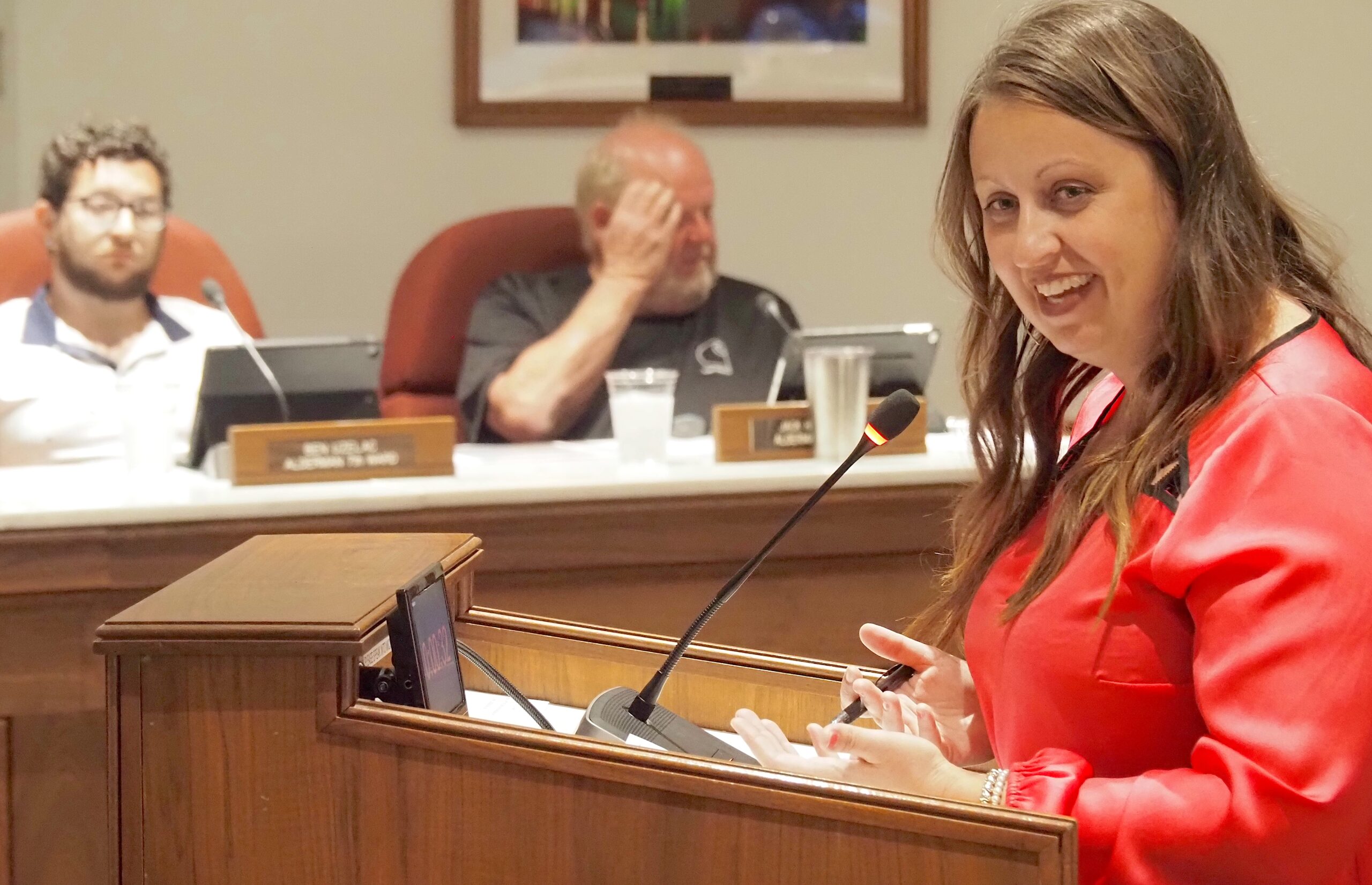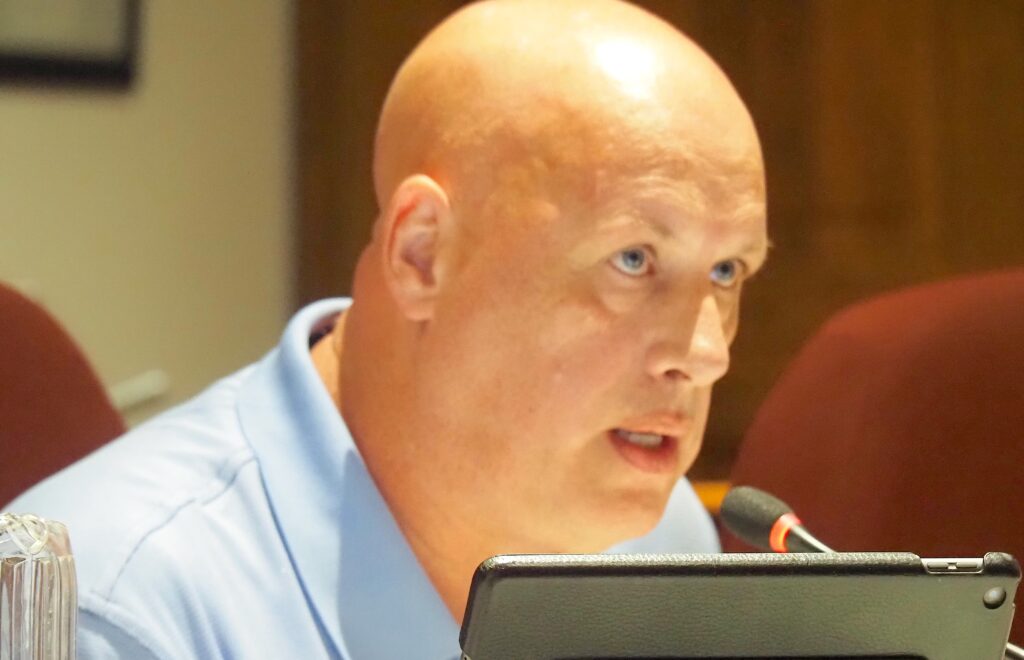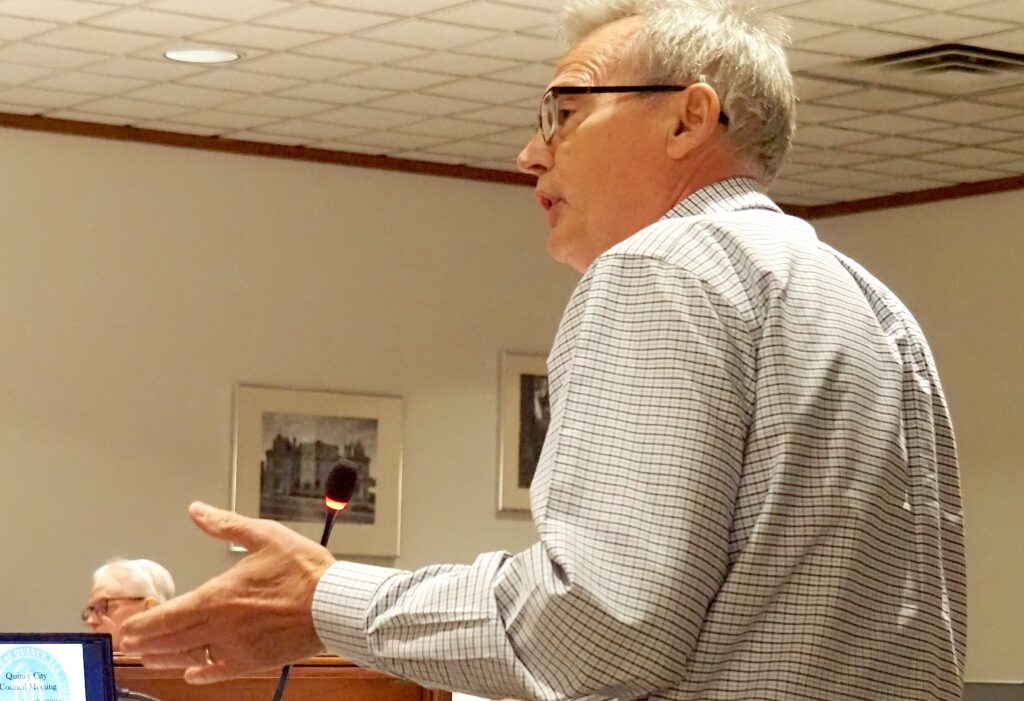Altered resolution giving $25,000 to Society of Fine Arts gets two more votes for passage

QUINCY — A rewritten resolution that authorizes giving $25,000 from the city’s Economic Growth Fund to the Quincy Society of Fine Arts got the two extra votes it needed from the Quincy City Council on Monday night.
After voting to permanently table the original resolution, aldermen voted 8-6 to approve a revamped resolution. Director of Planning Chuck Bevelheimer said he altered the resolution to focus more on what the arts council does for economic development and how city support strengthens applications for grants, instead of how the arts and cultural activities it provides improve quality of life and civic pride.
Six aldermen — Ken Hultz (R-3), Mike Farha (R-4), Richie Reis (D-6), Jake Reed (R-6), Ben Uzelac (D-7) and Jack Holtschlag (D-7) — kept their votes the same, voting in favor. Five aldermen — Greg Fletcher (R-1), Eric Entrup (R-1), Jeff Bergman (R-2), Dave Bauer (D-2) and Kelly Mays (R-3) — also kept their votes the same, voting no.
Tony Sassen (R-4) and Mike Rein (R-5) were absent for the Sept. 3 meeting. Sassen voted in favor on Monday, and Rein voted no. The only alderman who flipped his vote was Glen Ebbing (R-5), who voted for the measure this week. He said the rewording of the resolution changed his mind.
Corporation Counsel Bruce Alford explained that the City Council voted in 2013 to reduce the money given to not-for-profits over five years.
“There was not a resolution in the past that we wouldn’t support non-profit organizations,” he said. “There’s nothing to bind this council of that decision. This is a different council.”
Rein, a member of the City Council when the decision was made in 2013, didn’t think change was necessary. He said the government supports not-for-profits by giving them tax-exempt status.
“What (Bevelheimer is) suggesting is what has historically been done for not-for-profits is to get a letter of support from municipalities and elected officials and packing a bunch of letters of support in their grant applications,” he said. “Now you’re saying, ‘We’ve got to give a canceled check.’”
Bergman asked Bevelheimer who made the call to put a line item in the 2024-25 budget to give $25,000 from the Economic Growth Fund to the Society of Fine Arts. Bevelheimer said he spoke with Quincy Mayor Mike Troup about what projects he wanted to fund for the coming year. He said Troup wanted to give $30,000 to the Bicentennial Commission and $25,000 to the arts council.
Bergman then asked Troup if he was aware of the City Council’s previous decision to phase out funding to not-for-profits or if he ever considered bringing the request to the Finance Committee.
“That’s what budget meetings are for,” Troup said.
“I understand that, but also a budget consists of 247 pages,” Bergman said. “There’s a lot to swallow and chew on there.”
“(The budget meetings are) over five, six weeks,” Troup said. “We have different department heads making presentations on their section of the budget.”
Bevelheimer said he told aldermen during his budget presentation about the funds for the arts council and the Bicentennial Commission. He said both groups were told that before the money could be spent they would have to go before the City Council to present their requests.
“That’s how the system works, just like it should have worked,” Bevelheimer said.


Bergman then said he was concerned about what would stop future groups and organizations from coming to the city to ask for money.
“What’s the criteria for yes or no?” he said. “This seems to be setting the precedent to kind of dip our toes back into the water, and we got out of that pool years ago. Are these groups that are being subsidized or receiving money now coming back and hoping to get funding again next year?”
Bergman also noted the food and beverage tax, which funds the economic growth fund, is scheduled to sunset in April 2025. He asked Troup if he planned to support the continuation of the tax since he could still be the mayor at that time. Troup said it’s a topic the City Council needs to look at “based on the success we’ve had.”
“At what point do we say no because that revenue source is gone?” Bergman asked. “We cannot be dipping into general funds to be subsidizing organizations and groups.”
Bergman called the tax a “double-edged sword.” He said the tax this year is on pace to get nearly $1.8 million.
“It’s a slush fund. There’s no other way of saying it,” he said. “It’s a slush fund for us to spend money because we have extra money, and we’re spending it on wants instead of needs. A lot of people out there have received money from this program, and it’s done a lot of good in town. I’m not disputing that at all. There’s been a lot of benefits, but we’ve also gotten people used to the idea of coming to the city with their hand out to help with organizations and events that, if and when that food and beverage (tax) goes away, isn’t going to be available.
“It’s been a benefit, and it’s helping a lot of groups and organizations, but my concern is: Where do we draw the line? What happens in the future?”
Bergman also said his vote should have “absolutely no negative reflection” toward the Quincy Society of Fine Arts or its benefits.
Laura Sievert Hesseltine, executive director of the Quincy Society of Fine Arts, said the purpose of the Economic Development Fund is “crystal clear.”
“If you’re working for the economy and can prove it and it fits into the strategic plan, then you’re eligible to be funded,” she said. “(The city) made this for tourism and workforce development. I’m doing that work, so aren’t I entitled to be a part of it?”
She was quick to praise Farha and Ebbing for talking with her to educate themselves.
“If (Farha) hadn’t been on our side last week, (the resolution) would have died last week, and I’d have been back to the drawing board,” she said. “Mike and Glen sought out additional information, and that’s the difference between the nos and the yeses. They returned my phone call, listened to the argument and took in the information.”
Hesseltine said Bergman did not return her phone calls this past week.
“Left messages, sent emails, tried to talk, never spoke,” she said. “Then he’s grandstanding up there about it for 15 minutes. I was like, ‘You didn’t ask me.’ He didn’t even seek out the information. It was sort of sort of upsetting to hear somebody that fired up about something that means a lot to me, both in a professional way and in a personal way, as a person who has grown up and loved the art scene in Quincy.”
Miss Clipping Out Stories to Save for Later?
Click the Purchase Story button below to order a print of this story. We will print it for you on matte photo paper to keep forever.

